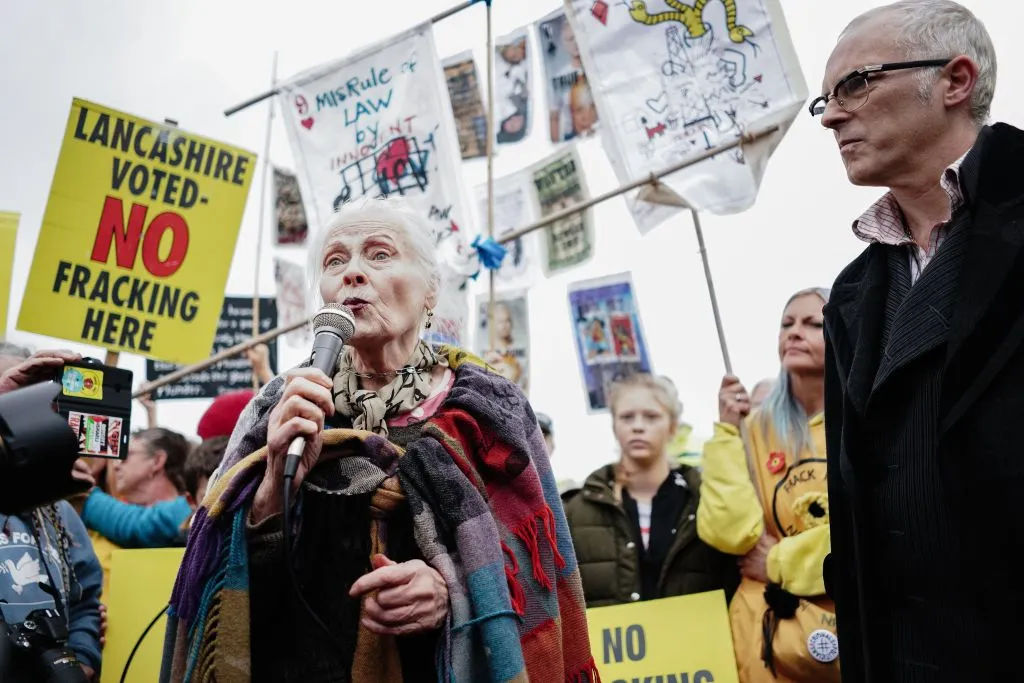Russia’s illegal invasion of Ukraine has shone the spotlight on the security of energy supplies and prompted calls by some politicians and energy companies to revive fracking. Other voices say that embracing more fossil fuels would make the UK’s legal commitment to Net Zero status meaningless and that, instead, the fuel price crisis is instead an opportunity to reinforce a transition to renewable energy.
A moratorium on fracking in the UK was imposed in November 2019 after activity at a fracking site operated by Cuadrilla in Lancashire in August that year caused a magnitude 2.9 earthquake. This followed a 2.3 magnitude earthquake linked to fracking in 2011. The government chose not to introduce an outright, long-term ban in law in England, Scotland and Wales.
The government says UK intends to phase out the import of Russian oil during the course of the year in response to illegal invasion of Ukraine. A new energy strategy will be set out by the end of this month, prompted by the pressure the war on Ukraine has put on what were already fast-rising energy prices. A government statement said that the moratorium on shale gas remained in place but that ‘we want to keep all options available to us, given these unique circumstances we find with the war in Ukraine, to help us move away from Russian gas.’
UK householders are facing a 54% jump in consumer gas and electricity bills in April, with domestic energy bills expected to rise by a further 50% in the autumn. Meanwhile petrol pump prices have risen sharply, up to £1.76 a litre for diesel and £1.65 for petrol.
Now the energy firm Cuadrilla has called for the government to restart fracking in its bid to reduce the UK's reliance on Russian gas. The call has been echoed by a number of Conservative MPs who argue that shale deposits around Lancashire could offer “at least 50 years of cheap and sustainable gas”.

Where does the UK get its oil and gas from?
The UK imports about half the gas it needs for heating and electricity generation. Less than 5% of our gas comes from Russia. By far the largest proportion of liquified natural – 90% – comes to the UK from Qatar. In contrast, EU countries import about 40% of their natural gas from Russia and 27% of their oil. The UK’s reliance on Russian oil is a little more significant, amounting to 3.95m tonnes in 2020, or around 8% of total crude oil demand and worth around £4bn to Russia in 2021. Norway and the United States are by far the largest exporters to the UK of crude oil, with Russia in third place.
What is fracking?
Fracking is shorthand for hydraulic fracturing, a method of extracting methane from shale deposits that are usually 2-3km underground. Shale gas reservoirs are wider than they are tall, so a well is first drilled vertically then the drill is steered until it is horizontal. To allow the gas to flow, fractures are created in the rock by detonating explosive charges. A combination of water, sand and chemical additives is then injected into the shale gas rocks at high pressure, forcing open the new fractures and allowing the gas to flow into the well and be collected at the surface.
How much methane could be recovered?
It is unclear how much shale gas exists in the UK that would be technically and economically viable to extract. Four areas in the UK have been identified as potentially viable: the Bowland-Hodder area in Northwest England, the Midland Valley in Scotland, the Weald Basin in Southern England, and the Wessex area in Southern England.
Estimates for just how much could be recovered have been lowered in recent years and few independent agencies agree with the fracking industry’s upbeat assessments. In 2013, the British Geological Survey suggested the Bowland-Hodder area may have held between 23.3 and 64.6 trillion cubic metres (tcm), though in 2019 this was reduced to 4.0 tcm.
According to the London School of Economics, ‘given the uncertainties, it is difficult to produce a reliable estimate of the shale gas resources that are technically and economically viable to extract in the UK.’
What are the risks?
The earthquake risks are not insignificant. Following the 2019 seismic activity, the UK Oil and Gas Authority investigated and concluded that ‘for future operations, the possibility of larger events could not be excluded and these could cause [unacceptable] damage and disturbance.’
Earthquakes aside, drilling sites can also potentially affect local air quality by releasing toxic chemicals. The burning off, or flaring, of excess natural gas; the operation of heavy equipment at the well site; and the use of diesel trucks to transport materials to and from a site may all contribute to air pollution. Chemicals and sand used in the hydraulic fracturing process, as well as other chemicals that surface with the natural gas, may potentially become airborne and affect air quality. In 2013, the Tyndall Centre for Climate Change Research, found that 58 of 260 recorded emitted substances from fracking have one or more properties that may give rise to concern, including 38 classified as being acute toxins, 8 as known carcinogens, and 17 classified as toxic to aquatic organisms. Advocates for fracking argue that burning methane is less polluting than coal.
Fracking also, perhaps self-evidently, tends to be proposed in rural areas and beauty spots. Plans for fracking in Sussex – rejected in 2014 – focused on the High Weald Area of Outstanding Natural Beauty. Similar proposals for Scotland’s Midland Valley included rural areas of Fife and East Lothian.
What do critics say?
‘Trying to restart fracking now would only mean wasting more time when we have little,’ says Rosie Rogers, Greenpeace UK’s head of energy. ‘If the UK and Europe want to end their dependence on Russian gas, the quickest way is by insulating homes, installing heat pumps and boosting renewables. These are tried and tested technologies, quick to deploy and getting cheaper all the time. The government now has the perfect opportunity to make radical changes in how we use energy to provide heating and generate electricity.
‘After a decade of hype and bluster, all the fracking industry has given us are two holes in a muddy field and some minor earthquakes.’
The former UN secretary general Ban Ki-moon has unexpectedly intervened, declaring that fracking in the UK would be ‘not a good idea’. He added: ‘It’s very short-term gain that will lose the long-term interest of humanity.’
The political voices calling for a revival of fracking also appear to be out of step with public opinion. A study in the autumn of 2021, commissioned by the UK Department for Business, Energy and Industrial Strategy found that just 17% of those asked supported fracking.
Would fracking make a difference to energy prices?
Cuadrilla and its supporters in parliament suggest that UK shale gas production would reduce the cost of energy for UK consumers. However, the consensus of economists is an emphatic ‘no’. Studies by both the London School of Economics and Warwick Business School suggested this is unlikely and concluded that potential benefits were based on the false assumption that UK shale gas would be sold significantly below the international market price for natural gas. Greenpeace commissioned its own economic analysis and concluded that ‘if [shale] ever gets produced, it will be sold to the highest bidder on the international market, with no impact on our energy bills.’
The prospect of shale gas enabling the UK to be self-sufficient in energy is also implausible, says the Warwick Business School (WBS). At best, according to the school’s 2020 report, UK production of shale gas could meet up to 22% of UK cumulative consumption between 2020 and 2050. However, it said this would only displace ‘a limited quantity of imports’, adding: ‘It will not be a UK shale gas revolution, but rather an exercise in slowing the increase in import dependence.’
WBS professor Michael Bradshaw writes on the university blog: ‘Even if the moratorium on fracking were to be lifted, it would take years of drilling before production could begin – far from the quick fix that some are calling for. By that time, the UK may not even need the gas: to meet the targets of a totally green power system by 2035 and a net zero economy by 2050, the nation’s gas consumption will have to fall dramatically.”
Main image: Fracking site in Lancashire./Credit: Getty

